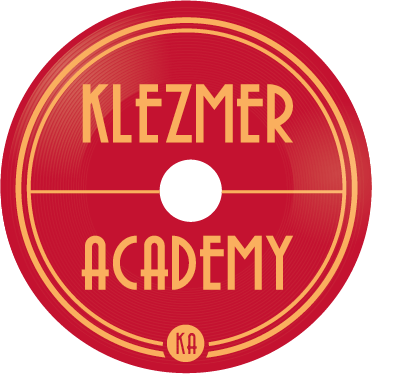As a collector and student of klezmer, there are two types of recordings that make my heart race with excitement: discs that contain tunes that I’ve never heard before, and those that introduce me to different versions of tunes I already know. During this holiday, we’ll be hearing both types, but to start things off, here is a Syrena Grand disc that includes two earlier European recordings of tunes we know from American releases.
The record features an orchestra under the direction of P. Grancowa. There doesn’t seem to be any information available about him, who he was or where he came from, and apart from a listing of 8 discs on the Syrena Grand label in Michael Aylward’s discography of European Jewish recordings and a sighting some number of years ago of several of these in an EBay listing, the recordings have remained a mystery.
The first side of this rare record is a tune entitled “Du zolst nit geren vus di mame vet dir zugen,” which translates roughly to “You won’t like what your mother will tell you.” The orchestra, which was recorded in June 1910, has prominent brass, a high clarinet and piccolo and intermittent clapping and is clearly working off an arrangement. But what is most interesting is the tune itself. An identical tune was recorded in New York in April 1913 on the Columbia label.
The Columbia recording featured Abraham Elinkrig’s ensemble, and the title was given as “Ich bank nach Odessa” (I long for Odessa). Elinkrig’s ensemble actually has a much less arranged sound than its European predecessor. While both feature prominent brass and woodwinds providing color, the musicians don’t play the same phrases and embellishments every repeat of the melody. And the person clapping is replaced with a snare drummer. However, both arrangements do share the dramatic break at the end of every chorus.
Having an earlier version of the Elinkrig tune was interesting, but what really made my heart beat faster was the other side of the Syrena disc, a tune entitled “Amerika”. One of my favorite tunes to play is Mishka Ziganoff’s “Odessa Bulgar” (Columbia 8019-F, recorded in New York, in February 1920. It’s a lively, two-section tune in the freygish mode.
When I first heard the Syrena recording, the tune was instantly recognizable, but the first half of the A section was in straight major rather than freygish, which was mind-blowing to me. Again, the ensemble is clearly playing a written arrangement, but that pales in comparison to hearing the transformation of that first section. There is also a very prominent snare drum which seems to drive the beat from the normal 2/4 square feel almost to a feeling of 6/8 dotted rhythm.
This is the first of three records of P. Grancowa’s ensemble that you’ll get to hear over the course of this holiday. But tomorrow, look forward to hearing a Syrena Grand recording by a Romanian Orchestra that is NOT Belf.
Khag sameaKh.
**Chanukah art from screen shots of the Menorah iPad app by RustyBrick, Inc.














